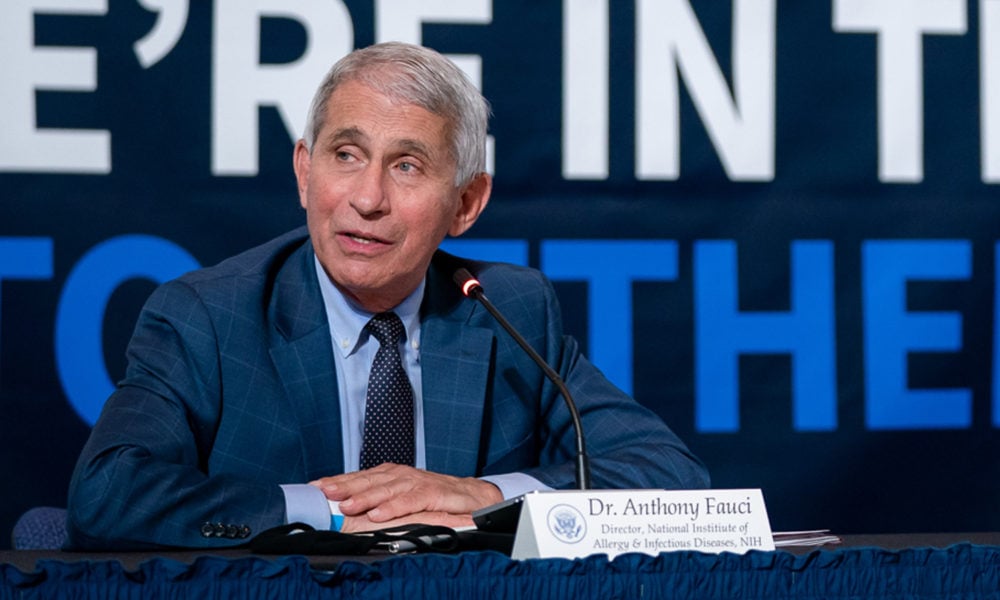Today, we are releasing our first set of recommendations providing a roadmap for how the federal government can restore science back to decision-making processes. The recommendations set a blueprint for strengthening scientific integrity across all science-based federal agencies, and also provide more specific recommendations tailored for the Environmental Protection Agency, the Department of Interior, as well as the Centers for Disease Control and Prevention.
We release this set of recommendations to strengthen scientific integrity (SI) and restore science to government decision-making processes at a time when our nation has been suffering from the lack thereof. Since 2017, science-based safeguards to keep people safe from hazardous pollutants, the effects of climate change, and workplace injuries have been weakened. Scientists have been muzzled, scientific work has been suppressed, and science is often sidelined at the behest of political actors with serious conflicts of interests.
The result of political interference in science-based decision-making is now glaringly apparent – the novel coronavirus has infected over five million people in the US to-date with over 170,000 dead, most from underserved communities. Yet, this is not the first time in the past three and half years that people’s lives have been put at-risk by the failure of government leaders to consider science in crucial decisions. We have even seen the ease by which a sharpie marker can undermine public health and safety and years of scientific progress.
We have learned that the policies aimed to protect science-based decision-making processes need to be strengthened. These processes are vital to protecting people’s lives and the health of our environment and must remain free from political interference or, as we have now seen, the toll on people’s lives and livelihoods can be catastrophic.
The roadmap
We do not have to live in a constant state of fear that our health is being put at-risk. We can restore and strengthen science-based decision-making processes that are protected from political interference. Below are some key tenets of our recommendations that can help to ensure that science remains at the forefront of government decisions.
Establish and empower scientific integrity officials
If federal agencies are to rigorously implement and enforces scientific integrity, dedicated officials, not political appointees, must manage these critical responsibilities. This would help ensure that political personnel do not sideline science or control implementation of an agency’s scientific integrity policies. To ensure that SI safeguards are enforceable, agency heads should appoint at least one full-time or full-time equivalent official to oversee scientific integrity. This individual should have broad power to enforce SI policy, investigate allegations of misconduct, and enforce penalties for violations.
Educate federal workers on their rights and responsibilities
Scientists at federal agencies deserve support for their careers and professional development, protection from political interference, and knowledge about both their rights as federal employees and options for recourse should those rights be violated. Trainings and activities around scientific integrity should include non-scientist federal workers who manage, supervise, and communicate scientific work.
Ensure open communication with the press and public
The public has a right to access scientific information produced or funded by the government. Accordingly, government scientists should have the right and obligation to publish their findings and communicate that information to the public. These scientists should be free to express their personal views on science and science-based policies, provided they make clear when they are or are not speaking on behalf of their agency.
Enforce clearance and review policies that protect scientific independence
Because effective government decisionmaking depends on the best available science, no political official should be able to suppress scientific research, analysis, and reports. To protect scientists from interference and to promote their engagement with the broader scientific community, each agency should create well-defined, consistent, and transparent clearance procedures for scientific publications, presentations, and conference participation.
Prevent interference in data collection and research funding
Data collection and research are central to government science and, by extension, government decisionmaking and the public’s well-being. Scientific research can reveal problems, identify solutions, and ensure that solutions are effective. This is a cornerstone of informed governance.
Prevent conflicts of interest in government science
The use of science to inform agency decisionmaking must be as unbiased as possible, and the science itself should be independent—in other words, free of political, ideological, or financial influence. Independent science helps our government make informed decisions to protect public health and safety, and it enhances public trust when decisions are based on valid, credible processes.
Provide safe procedures to report and investigate violations
Even with comprehensive scientific integrity policies in place, violations and abuses can occur. Agencies must provide their employees, and scientists outside the agency, with clear procedures for reporting violations without fear of retaliation. Agencies must respond quickly and effectively to allegations and enforce penalties for individuals found to have committed scientific integrity violations. Such policies would help empower employees to report problems safely and, as a result, ensure that violators are held accountable.
We can do better
When science is politicized during a global pandemic resulting in hundreds of thousands of people dead – we must call on our leaders to do better, to listen to the scientists and let them do their jobs. This is particularly true when even thousands of lives lost cannot deter our leaders from continuing to attack science. We are in an unprecedented health crisis and experience the worst economic downturn in over 100 years – politicizing science currently is appalling.
Science is still our best system of gathering knowledge and understanding natural phenomenon. It has informed policies that ensure the air we breathe and the water we drink is clean, that we have access to vaccines to protect us from deadly diseases, and even ensures that the toys are children play with are safe. We must protect the rights of federal scientists and their work to inform crucial decisions that protect us all and we must lend our support to science-based decision-making now.

